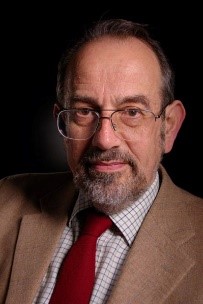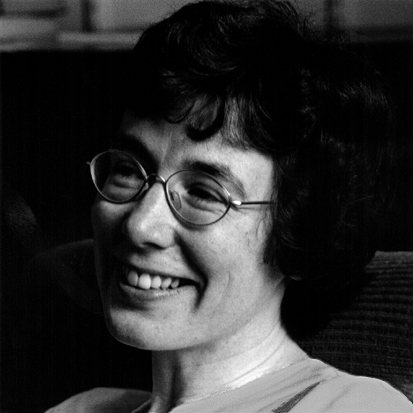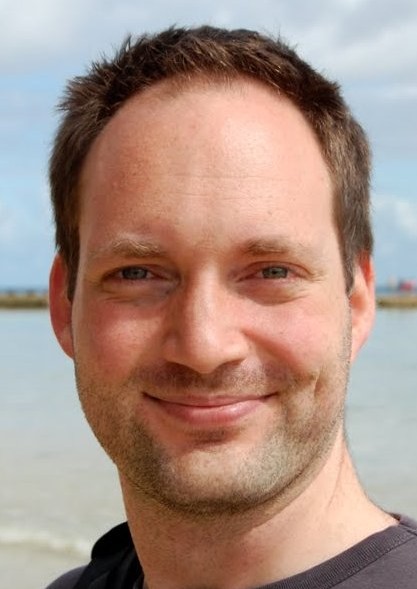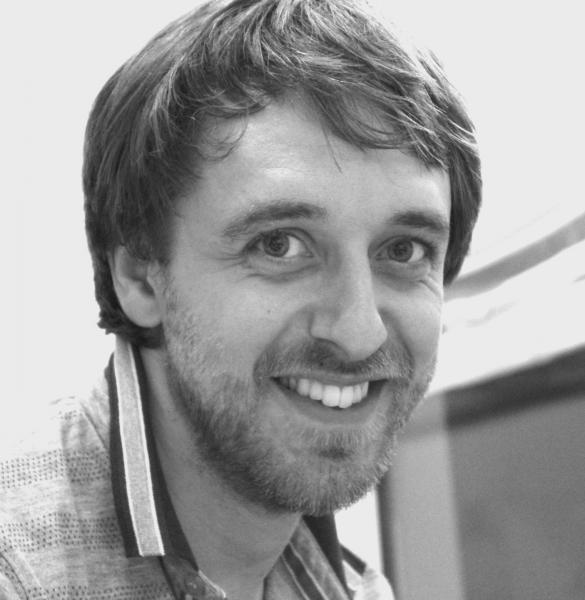Andrew Blake
Andrew Blake is a Microsoft Distinguished Scientist and the Laboratory Director of Microsoft Research Cambridge, England. He joined Microsoft in 1999 as a Senior Researcher to found the Computer Vision group. In 2008 he became a Deputy Managing Director at the lab, before assuming his current position in 2010. Prior to joining Microsoft Andrew trained in mathematics and electrical engineering in Cambridge England, and studied for a doctorate in Artificial Intelligence in Edinburgh. He was an academic for 18 years, latterly on the faculty at Oxford University, where he was a pioneer in the development of the theory and algorithms that can make it possible for computers to behave as seeing machines.
He has published several books including "Visual Reconstruction" with A.Zisserman (MIT press), "Active Vision" with A. Yuille (MIT Press) and "Active Contours" with M. Isard (Springer-Verlag). He has twice won the prize of the European Conference on Computer Vision, with R. Cipolla in 1992 and with M. Isard in 1996, and was awarded the IEEE David Marr Prize (jointly with K. Toyama) in 2001.
In 2006 the Royal Academy of Engineering awarded him its Silver Medal and in 2007 the Institution of Engineering and Technology presented him with the Mountbatten Medal (previously awarded to computer pioneers Maurice Wilkes and Tim Berners-Lee, amongst others.) He was elected Fellow of the Royal Academy of Engineering in 1998, Fellow of the IEEE in 2008, and Fellow of the Royal Society in 2005. In 2010, Andrew was elected to the council of the Royal Society. In 2011, he and colleagues at Microsoft Research received the Royal Academy of Engineering MacRobert Award for their machine learning contribution to Microsoft Kinect human motion-capture. In 2012 Andrew was elected to the board of the EPSRC and also received an honorary degree of Doctor of Science from the University of Edinburgh. In 2013 Andrew was awarded an honorary degree of Doctor of Engineering from the University of Sheffield. In 2014, Andrew gave the prestigious Gibbs lecture at the Joint Mathematics Meetings.
|
Robert Calderbank
Robert Calderbank is a Professor of Electrical Engineering, Computer Science and Mathematics and current director of the Information Initiative at Duke. In 1975 he received a BSc from the University of Warwick, an MSc from Oxford in 1976 and a PhD from Caltech, all degrees being in mathematics. In 1980, he joined AT&T where he was Vice President for Research and during his time there, he co-discovered space-time coding. He then moved to Princeton where he directed the Program in Applied and Computational Mathematics before moving to Duke in 2010 to become Dean of Natural Sciences. Calderbank’s contributions to coding and information theory won the IEEE Information Theory Society Paper Award in 1995 and 1999. In 2005, he was elected to the US National Academy of Engineering, became a Fellow of the American Mathematical Society in 2012, won the 2013 IEEE Richard W. Hamming Medal and the 2015 Shannon Award.
|
Nigel Hitchin
Nigel Hitchin is a British mathematician whose work has contributed to the fields of mathematical physics, differential geometry and algebraic geometry. His noteworthy discoveries include the Hitchin integrable system, which has played an important role in algebraic geometry and number theory, and the Atiyah-Hitchin-Singer theorem, which heralded the introduction of ideas from theoretical physics into pure mathematics.
He attended Ecclesbourne School, Duffield and Jesus College, Oxford, where he earned his BA in mathematics in 1968. In 1972, he received his D.Phil. at Wolfson College, Oxford and in 1997 he was elected to the Savilian Chair of Geometry at Oxford University, after holding chairs in both Warwick and Cambridge. Hitchin was elected a Fellow of the Royal Society in 1991 and is an Honorary Fellow of Oxford’s Jesus and St Catherine's Colleges, Cambridge's Gonville and Caius College and has earned many prizes and awards including Honorary Degrees from the Universities of Bath and Warwick, the Senior Berwick Prize and Pólya Prize of the London Mathematical Society and the Sylvester Medal of the Royal Society.
|
Frances Kirwan
Dame Frances Clare Kirwan, DBE FRS is a British mathematician, currently a Professor of Mathematics at the University of Oxford. Her fields of specialisation are algebraic and symplectic geometry. Kirwan was educated at Oxford High School, and studied maths as an undergraduate at the University of Cambridge. She took a D.Phil at Oxford in 1984 (dissertation title The Cohomology of Quotients in Symplectic and Algebraic Geometry), which was supervised by Michael Atiyah. Kirwan's research interests include moduli spaces in algebraic geometry, geometric invariant theory (GIT), and in the link between GIT and moment maps in symplectic geometry. Her work endeavours to understand the structure of geometric objects by subtle investigation of their algebraic and topological properties. She introduced the Kirwan map. From 1983-85 she held a Junior Fellowship at Harvard. From 1983-86 she held a Fellowship at Magdalen College, Oxford, before later becoming a Fellow of Balliol College, Oxford. In 1996 she was appointed a University Professor of Mathematics. From 2004-06 she was President of the London Mathematical Society, the second-youngest president in the society's history. In 2005, she received a five-year EPSRC Senior Research Fellowship, to support her research on the moduli spaces of complex algebraic curves.
|
Terry Lyons, President LMS
Terry Lyons is a British mathematician, researching in stochastic analysis, the branch of mathematics which aims to provide tools that can allow mathematicians to describe high dimensional and interacting random systems, whose states are determined probabilistically; there will be some indeterminacy. The fields of mathematics which have been benefitted by his research include probability, quantitative finance and the numerical study of stochastic differential equations. For example, Lyons developed the Theory of Rough paths for his work in probability theory and has written a book called ‘System Control and Rough Paths’ along with Zhongmin Qian. Professor Lyons gained his B.A. at Trinity College, Cambridge and his D.Phil. at the University of Oxford. He had previously worked at UCLA, Imperial College London, the University of Edinburgh, and was the Director of the Wales Institute of Mathematical and Computational Science. As well as being a founding member of the Oxford-Man Institute of Quantitative Finance at the University of Oxford, he now holds the position of Director of the Institute. Lyons was awarded the Rollo Davidson Prize in 1985 and the Pólya Prize of the LMS in 2000. In addition, he was elected a Fellow of the Royal Society in 2002, a fellow of the Learned Society of Wales in 2011, and president of the LMS in 2013.
|
Maggie Philbin
Maggie Philbin is an English radio and television presenter, working on a wide variety of science, medical and technology programmes. She studied English and Drama at the University of Manchester and since being a co-presenter on Multi-Coloured Swap Shop, Philbin has appeared on many television programmes including BBC1’s Tomorrow’s World, Hospital Watch and Bodymatters Roadshow. In 2008, she created TeenTech which is an interactive science and engineering organisation and supports the understanding of opportunities in Science and Technology in young people as well as in their parents and teachers. It is a 1 day event which has attracted over 400 children, and has won many awards including a Google RISE Award, the Best Communication and Outreach Award and in 2010, the British Science Association awarded it the Best Engineering Event. Philbin also writes about technology for BBC WebWise and The Guardian, and is the face of technology for BBC News on television, radio and online. Her awards include an honorary doctorate in Technology from De Montfort University in 2012 for her contributions to the world of science and technology, and in 2013, she received the Promotion of Design Award by the Institution of Engineering Designers. She became president of the Institution of Engineering Designers from July 2014, succeeding Sir George Cox.
|
Robert Pieké
Rob Pieké is the Research Lead at MPC in the heart of Soho, London. He dabbled in computer graphics programming in BASIC on the PCjr from an early age, but was completely hooked by the visual effects industry after seeing Jurassic Park in the cinema. After studying Computer Engineering at the University of Waterloo, Rob led a small VFX R&D team at C.O.R.E. Digital Pictures in Toronto from 2003-2007. He then moved to London to join MPC as a Senior R&D Artist on The Chronicles of Narnia: Prince Caspian, and has remained with the company ever since, developing a series of Character, FX, and Core technologies. Presently Rob is focused on investigating the state-of-the-art in computer graphics technologies, and trying to figure out what 'the next big thing' for the visual effects industry will be.
|
James Reid
James is currently Head of Effects at Milk Visual Effects; a BAFTA award-winning boutique visual effects company focused on creating innovative and complex sequences for TV and feature films. Recent work includes TV projects such as Dr Who and Sherlock, as well as movies such as Hercules, Dracula: Untold, and 47 Ronin. James gained Masters degrees in Engineering Science from Oxford University and Computer Animation from Bournemouth University, providing a technical and artistic foundation that is key to visual effects work.
|
Steve Thompson
SteveThompson is a British playwright and screenwriter, having trained on the RADA playwrights’ course. Some of his plays include Damages, which was performed at the Bush Theatre in 2004 and was awarded the Meyer-Whitworth Award for new writing, and No Naughty Bits, which is his latest play and was performed at the Hampstead Theatre in 2011. He has also contributed scripts for television shows such as Doctor Who (series include The Curse of the Black Spot and Journey to the Centre of the Tardis), Sherlock (The Sign of Three and The Reichenbach Fall) and Upstairs Downstairs. Having previously been a math’s teacher at Tiffin School, he incorporates his mathematical ability into writing scripts. |









